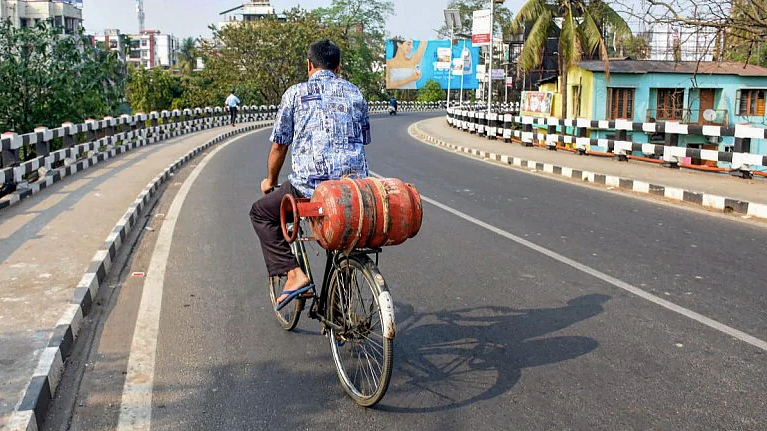New MHA Notice to Ease Supply of Essential Goods in Lockdown
The MHA issued a fresh clarification around the ground level issues faced by states in supply of essential items.

advertisement
The Ministry of Home Affairs, on 4 April, Saturday, issued a fresh clarification around the ground level issues faced by states in ensuring smooth supply of essential items in this 21-day lockdown.
The notification reiterated that daily essentials include production, warehousing and transport of essential goods such as food, groceries, fruits and vegetables, dairy and milk products, meat and fish, animal fodder, seeds, fertilisers and pesticides, agriculture produce, drugs, pharmaceuticals, medical devices, their raw material and intermediaries. It also includes e-commerce services that provides delivery of such commodities.
The notification also said that production, warehousing and transportation of essential goods are exempted from the lockdown and that district authorities are issuing passes to those who are covered under this category. It also addressed the difficulties in getting these passes issued.
“Difficulties in getting passes are, however, being faced by businesses having nation-wide supply chains of essential goods. In order to address this concern, the State/UT Governments have been advised to issue authorisation letters to companies/ organizations having nation-wide supply chains of essential goods, allowing them to issue regional passes for easy movement of critical staff and workers in order to maintain their national supply chains. It has been further advised to keep the numbers of such authorisations bare minimum,” the notification says.
Regarding the transportation of items across the country, Railways, Ports and Airports will be allowed to issue passes for a critical mass of staff and contractual labour that are essential for such operations, the MHA guidelines said.
For inter-state and intra-state movements of trucks and other carrier vehicle, a driver and an additional helper will be allowed, so long as the driver is carrying a valid licence. In case the vehicle is empty, then the driver will be required to produce the invoice of the delivery.
These clarifications come as confusion regarding the transportation and delivery of essential goods persisted a week into the lockdown.
Following Prime Minister Narendra Modi’s announcement of the lockdown on the evening of 23 March, there arose a lot of confusion about the transportation and availability of essential goods in this time period, leading to panic-buying and hoarding of such items.
PM Modi had directed people to step out for only basic necessities only like food and medicines but, as reports came of security forces harassing people who were out to buy essentials and delivery persons on the road, it appeared that even officials are unclear about this directive.
Moreover, some items like sanitary pads for women were left out in the list of essential items provided by the centre.
Soon after, on 29th March, 2020, the MHA had clarified that grocery would include hygiene products such as hand washes, soaps, disinfectants, body wash, shampoos, surface cleaners, detergents and tissue papers, toothpaste / oral care, sanitary pads and diapers, charger and battery cells, etc.
(At The Quint, we question everything. Play an active role in shaping our journalism by becoming a member today.)